6. Still Crazy (1998)
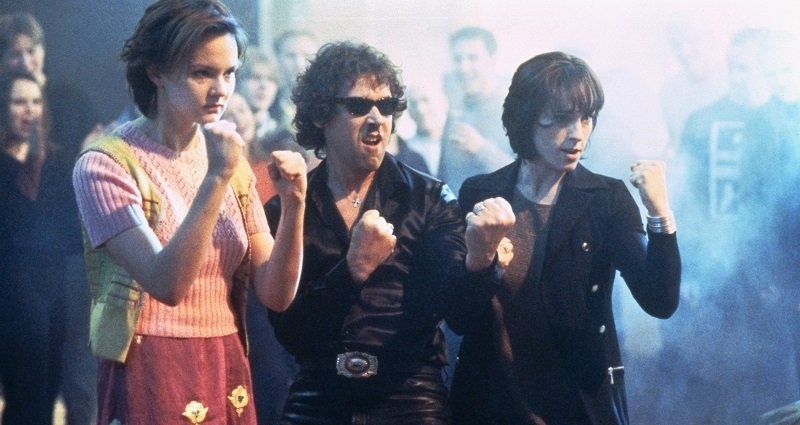
Produced in the era of Cool Britannia, this 90s comedy from Porridge scribes Ian la Frenais and Dick French concerns Strange Fruit, a washed-up rock band from the 70s who decide to stage a well-intentioned reunion two decades later. The film squeezes in many jokes concerning middle age while also exploring the renewed relationships between the band members as they try to recapture their lost youth.
The cast is impressive, with Bill Nighy excellent as the over-the-hill lead singer, henpecked by a young wife. Joining Bill Nighy in the cast and getting the lion’s share of the film’s funniest moments is Timothy Spall, as an inland revenue-fearing drummer. Stephen Rea, who initially brings the band together, bags a straighter role as keyboardist Tony, with Billy Connelly popping up as Hughie, an excited roadie and occasional narrator.
After a pre-titles sequence depicting the band in their 1970s heyday, the film kicks into gear when the band begin touring in a handful of tiny venues across Europe. While on tour, struggling to hit the high notes of the old days, the film manages a few good songs evocative of the 1970s while also pulling at the heartstrings as the band grow closer, burying the many resentments of their shared past. Writers Ian la Frenais and Dick French, who were on similar ground with The Commitments earlier in the decade, offer a screenplay that celebrates middle-aged rockers chasing ghosts and past glories.
7. Doomsday (2008)
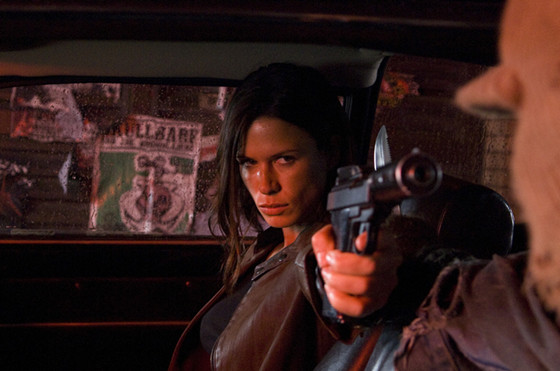
Viewed post-2020, Malcolm McDowell’s growling opening voiceover regarding a virus which “doesn’t hate or even care” has particular resonance today, with talk of lockdowns, death tolls and global pandemics having become commonplace. Doomsday begins on the English and Scottish border in 2008, as the Reaper virus spreads throughout Scotland, killing thousands. The country is placed under quarantine and ultimately, gun towers and a thirty-foot steel armour-plated wall stretching eighteen miles are deployed to separate Scotland from the rest of the UK. Fast-forward to 2035, and with the help of some sneaky satellite imagery, survivors are spotted walking the streets of Glasgow. A nervy British government sends in a specialist team led by Major Eden Sinclair (Rhona Mitra) to go beyond the wall to find a cure to the virus.
The screenplay was born from Marshall’s interest in Hadrian’s Wall. He wondered about the consequences if a wall that was once the frontier of the Roman Empire were to be rebuilt. Marshall’s answer was a film that was, in a nutshell, futuristic soldiers in battle with medieval knights in a post-apocalyptic action film.
After two triumphant cult favourites earlier in the decade, director Neil Marshall was given a bigger budget than he had with Dog Soldiers and The Descent, and delivers a much more ambitious film. Doomsday successfully carries on Marshall’s onscreen tradition of blood and guts as well as tipping a wink to such seminal works as Mad Max, Escape to New York and The Warriors.
8. Croupier (1998)
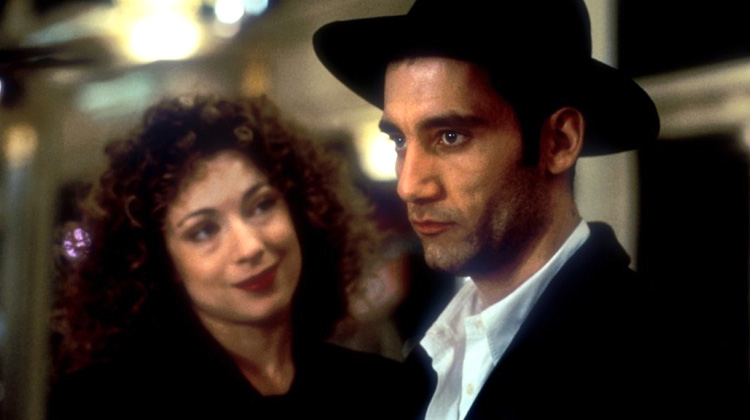
Clive Owen’s career destiny as a future A-lister was confirmed with this low key British crime film from the late 1990s. Directed by Get Carter director Mike Hodges, Croupier follows Jack Manfred (Clive Owen), an aspiring writer who, with the help of his scheming father, gets a job as a croupier.
Free-falling into the seedy world of a London casino and its dubious clientele, Jack neglects his store detective girlfriend, Marion, before betraying their relationship by sleeping with Bella, another croupier at the casino. Jack’s life becomes even more complicated after encountering a curious South African woman who pushes Jack further down the rabbit hole, as Jack becomes the inside man for a robbery at the casino.
The look of the casino is less gaudy than usual, and its compact and more muted appearance fits Hodges’s restrained direction. Clive Owen lends the character of Jack a sense of detachment; Jack’s inner thoughts, conveyed in a stylish voiceover, can control his actions and the actions of other players within Jack’s world at the roulette wheel, a world he keenly observes.
Due to Owen spending most of his screen time in a tuxedo, rumours of the actor as a potential candidate for the role of James Bond would continue for the best part of a decade. The Bond role never materialised, but judging by his cold and remote performance in Croupier, we can only wonder what might have been. Going under the radar until a successful cinema run stateside, Croupier concentrates more on atmosphere than plot and is strengthened by a superb supporting cast, including Gina McKee, Nicholas Ball and Alex Kingston.
9. The Fourth Protocol (1987)
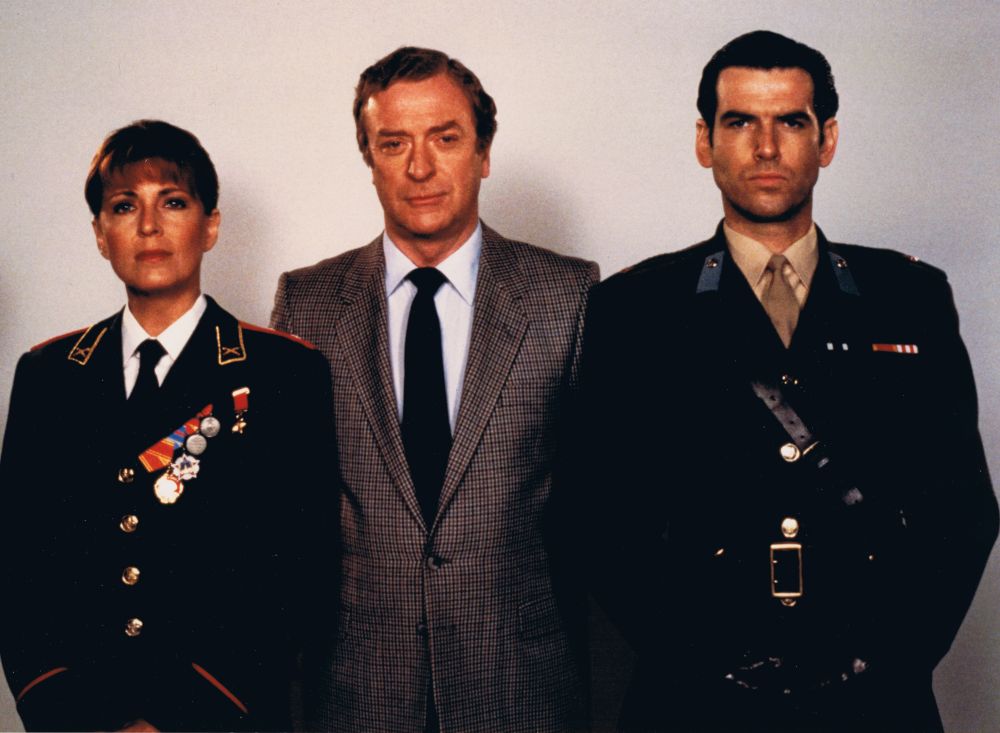
Based on his novel from a few years earlier, best-selling author Frederick Forsyth writes the screenplay for this old-fashioned spy thriller starring Michael Caine and a fresh-faced Pierce Brosnan. A treaty to help stop the spread of nuclear weapons is signed by America, Britain, and Russia in 1968. The pact contains four secret protocols, and the fourth protocol is a clause that prohibits any unorthodox transportation and detonation of a nuclear weapon.
Better known in the mid-80s as the star of Remington Steele, Pierce Brosnan is in splendid form as a Soviet spy who breaches the fourth protocol when he’s dispatched to Britain to help smuggle and assemble the components of an atomic bomb. In a bid to weaken Anglo-American relations, and making it look like a nuclear accident, the Soviets will explode their bomb next to an American airbase, and it’s all down to Caine’s tired British agent to help save the day.
Michael Caine plays yet another spy, one not a million miles away from his Harry Palmer persona from twenty years earlier, but Caine’s effortless performance here as John Preston in The Fourth Protocol helps lift the unoriginality of the plot. The score by Mission Impossible composer Lalo Schifrin helps the tension tick over from scene to scene, as director John Mackenzie, better remembered for The Long Good Friday, builds the ensuing drama. All in all, The Fourth Protocol is a very entertaining spy yarn, helped further by a superb cast of British thesps, mainly in supporting roles as British spymasters.
10. Bloodbath at the House of Death (1984)
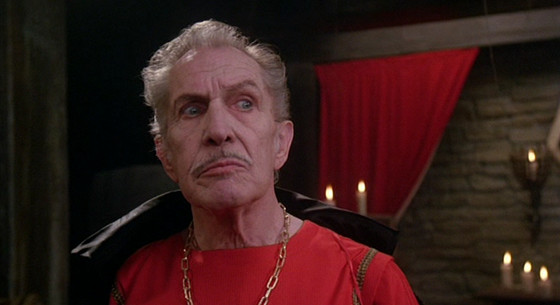
Carrie, Jaws, Alien, Quatermass 2, and half a dozen Hammer films get the Kenny Everett treatment in Bloodbath at the House of Death, a confusing yet compelling comedy from the 1980s. The plot, if you can call it one, begins in 1975, as a group of gun-wielding monks brutally murder eighteen people at Headstone Manor. A few years later, a group of specialists, led by Doctor Lucas Mandeville (Kenny Everett) and Doctor Barbara Coyle (Pamela Stephenson), are called in to investigate when “strange, inexplicable radioactive readings” are picked up in the area, linked to Headstone Manor.
Given the plain and unimaginative title of “Sinister Man”, horror icon Vincent Price turns up in a handful of scenes as a devil worshipper and delivers some of the screenplay’s funniest lines. A laughter track may have been helpful for the rest of the film, as it’s difficult to spot any other jokes in Barry Cryer’s and Ray Cameron’s woeful screenplay.
Lead actor Kenny Everett was an inventive comedy genius, making his name on the airwaves before switching to the small screen. However, based only on the evidence of Bloodbath at the House of Death, anyone who hadn’t heard of the comedian would be questioning Everett’s comedy credentials. Okay, Bloodbath at the House of Death isn’t the best advert for Kenny Everett’s humour, but the film itself is so barmy, so strange, that it’s difficult, even within the first few frames of the film, not to be pulled in by its sub-Carry On tractor beam.